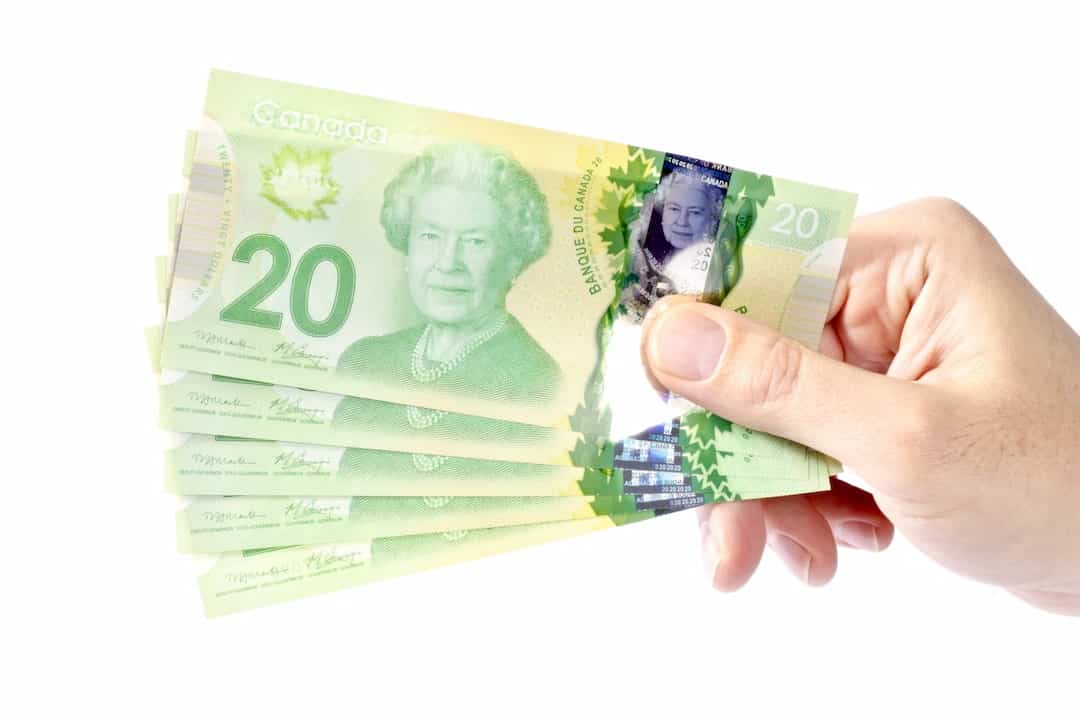Trading options is one of the most effective investment strategies that experienced investors opt for to increase their potential profits. It involves the trading of instruments that grant you the right to buy or sell certain securities at a specific price and on a specific date.
Options trade similarly to mutual funds, ETFs (see also best ETFs in Canada, best bank ETFs in Canada, top energy ETFs, or ETF sectors) and stocks, but while mutual funds and stocks are viewed as securities, options are viewed as derivatives.
This is due to the fact that the market value of options is highly dependent on the price of other assets. Without said assets, options will have no value.
From what to look out for when attempting to buy or sell options to the best online brokerage in Canada, in this guide, we shed light on how to trade options in Canada. So, stick around!
Our recommendation:
Can You Trade Options in Canada?
Yes, you can trade (buy and sell) options in Canada. The country’s options trading activities take place on the Montreal Exchange, which is a fully electronic exchange that’s dedicated to the development of derivatives markets.
It’s worth noting that most online brokers allow the trading of options that are listed on both American and Canadian exchanges.
Another thing that’s worth pointing out is that binary options trading is illegal in Canada. In fact, there isn’t a single binary options broker who has a bona fide license to operate in Canada.
Canadian Options Trading Explained
In Canada, for stocks to be treated as options, they must be listed on a stock exchange that’s based in Canada. Not only that, but the market capitalization of said stocks must be within the top quartile (25% percentile) of Canadian exchange securities, reviewed from the last trading day of the preceding quarter.
Another eligibility requirement that stocks must comply with in order to be treated as options in Canada is that their monthly North American volume has to be within the top quartile of all Canadian exchange securities.
How Do You Trade Options?
To understand how to buy and sell options, you must first understand what options are and be aware of the different types of options out there.
Like we stated earlier, an option contract grants you the right to sell or buy an underlying asset. There are two basic types of options available: call options contract and put options contract.
Call options give you the right to buy certain securities for a specified price, also known as the exercise price. The purchase of the security can be made before or on the option’s specified date, also known as the exercise date or the expiration date.
By the exercise date, if the underlying stock is trading under the strike price, the option will likely expire and become worthless, which will then prevent you from exercising your right to buy the underlying stock.
Put options, on the other hand, grant you the right to sell certain securities for a predetermined price. The transaction can be made before or on the option’s exercise date, the same as call options.
By the exercise date, or the expiry date, if the underlying security to which the put option is tied is trading beyond the strike price, you guessed it; the option expires and becomes worthless.

It’s worth noting that the two types of options can be combined to accommodate different direct investing strategies. They can be combined to hedge portfolio risks and speculations. They can also be combined for personal finance or to generate income.
Options trading can be a risky investing endeavour, especially as an options seller, because your losses can be potentially unlimited. However, as an options buyer, your losses are limited to the premium you’ve paid for the options.
That being said, we don’t recommend options trading for those with low balances, as well as those with limited direct investing knowledge. Options trading is best-suited for experienced investors.
Choosing the Right Strike Prices
Choosing the right strike price is the key to making a profit as an options trader.
With a call option, you want the stock price to rise above the strike price before the contract’s duration is over. With a put option, per contra, you want the stock price to fall below the strike price before the contract’s duration is over.
So, how do you choose the right strike price, exactly? Let’s assume you’re eyeing a stock that’s trading at $100. If you think the stock’s value will rise to $200 per share at some point in the future, you’d purchase an option at a strike price that’s under $200; say $150. In this case, you’re buying a call option.

Assuming the option you’ve purchased has an expiration date of six months, you’ll be able to buy shares at a price of $150 per share for up to six months, even if the stock price rises above $150.
Having acquired a few shares for $150 apiece, you can then sell them for their current market price, profiting the difference between the price at which you bought them and the price at which they’re currently sold.
If you’re more of a conservative investor, it’s best that you opt for a strike price that’s equal to or below the underlying stock’s price. However, if you’re an investor with a high-risk tolerance and enough experience, you can opt for a strike price that’s above the stock’s price.
What to Look Out for When Buying or Selling Options
There are several factors that you ought to consider before you opt for an options trading brokerage. These include the broker’s trading commission, market data subscription, and margin requirements.
Trading Commission
Ideally, it would be best to opt for a brokerage or robo advisor that offers tiered pricing or charges a low commission per share. Aim for something that’s around $1.25 per share. If you intend to trade in high volumes, you should then consider fixed pricing.
Market Data Subscription
The best platforms for trading options typically offer real-time market data services at a monthly fee. If you value such intel, then you should factor the cost into the equation – also, check out Questrade for that matter.
Margin Requirement
As we’ve already established, options trading can be risky, which is why most brokerages require a minimum account balance to start trading. The minimum brokerage account balance can be anywhere between $2,000 and $25,000.
Note that the margin can vary depending on the options strategies you intend on following. It can also depend on the brokerage’s risk policies. So, before you choose a brokerage, be sure to inquire about their risk policies.

What Is the Best Online Options Trading Platform in Canada?
Interactive Brokers is arguably the best online options trading platform in Canada, especially for active traders who are looking to acquire global options at a low cost.
This online platform offers you access to 135 different markets spread across 33 countries. In addition, you have the option to choose between tiered and fixed pricing.
With tiered pricing, the higher your trading volume, the lower the commission will be, while fixed pricing is probably the best active trader pricing model.

As far as margin requirements, it all boils down to your options strategy. On the one hand, if you opt for long, covered call or put options, the margin requirement can be zero.
On the other hand, if you opt for short, naked options, the margin requirement can be up to 30% of the value of the underlying security.
How Do You Qualify for Options Trading?
It all depends on the platform you intend to use. Different platforms have different eligibility requirements. Interactive Brokers, for instance, requires you to have at least two years of experience before you start trading.
For active traders who have extensive trading knowledge but don’t have the required years of experience, Interactive Brokers offers them the chance to take a test. Then, having passed that test, you can start using the platform to buy and sell options.
FAQs
How Do Stock Options Work in Canada?
Stock options are typically handed to you by your employer. Using them, you can buy a predetermined number of shares at a fixed cost within a fixed timeframe.
Keep in mind that such options don’t grant you shareholder rights.
How Are Options Taxed in Canada?
The gains and losses from a put or call option are typically taxed as capital gains.
Do Trading Options Require a Trading Account?
Yes, before you start option trading, you’ll need to open an option trading account.
The Bottom Line
To summarize, options are derivatives that are tied to underlying assets. Without said assets, options hold no value. You can buy and sell options in Canada, as long as they’re not binary options, which are illegal to trade in Canada. Options trading is best-suited for experienced investors, seeing as it comes with associated risks. So, make sure you have sufficient experience before you start trading options. Good luck with your options trades!